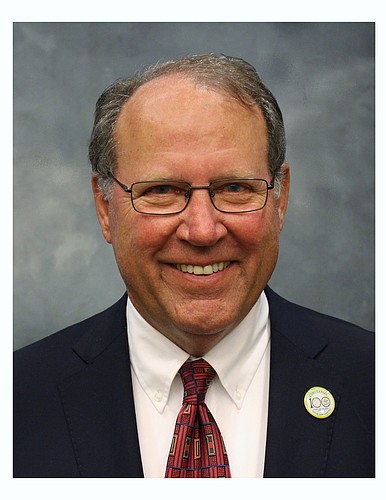- January 23, 2025
-
-
Loading

Loading

(This editorial was updated at 12:15 p.m. Feb. 14.)
There is a debate swirling in the Legislature about how to regulate short-term vacation rentals. Rental property owners and platforms such as Airbnb want to be excluded from local control. Local governments contend that they do not want unrestrained rentals in all of their neighborhoods with no ability to protect residents.
In response, the vacation rental industry offers limited state regulation and occupancy limits. Is it enough to protect neighborhoods? In Flagler County, we focus on protecting the character of single-family neighborhoods in the unincorporated county. We judge any proposed legislation from that perspective of protecting our neighborhoods.
Sen. Travis Hutson wrote in the Feb. 8 Observer that the bill in the Florida Senate resolves the property rights and quality of life concerns for neighborhoods. We disagree.
The owners of single-family homes who are permanent residents have no property rights recognized under the bill. Instead, the bill declares that investors have a constitutional right to operate a short-term vacation rental in single-family neighborhoods.
We credit Sen. Hutson for filing an amendment that allows homeowner associations to restrict short-term rentals. However, many of our neighborhoods would be unprotected.
Sen. Hutson also commends the bill for its inclusion of an occupancy limit. Unfortunately, the Senate bill contains a formula that would allow extremely high occupancy rental facilities, making no distinction between single-family neighborhoods and resort areas.
The bill’s wording is up for interpretation. It would create 509.6051 in the Florida Statutes to say this: “Vacation rentals have a maximum occupancy limit of the lesser of the following:
(1) Four persons plus two additional persons for each sleeping room.
(2) One person for each 150 square feet of finished area.
Under No. 2, a 3,000- square-foot home would allow for 20 occupants. But what does No. 1 mean? According to Sen. Greg Steube’s interpretation, it means six occupants per bedroom, or 24 for a four-bedroom home. It seems to make more sense to interpret it as four occupants for the house, plus two per bedroom, or 12 for a four-bedroom home. That’s still more than the 10 occupants our County Code deems safe in that home.
The Senate bill also strips Flagler County of the ability to inspect single-family homes as short-term vacation rentals where the owner of the home does not reside at the home.
Flagler County inspects these investor owned houses when they apply for certificates to operate as vacation rentals in our single-family neighborhoods. These life-safety inspections are to assure compliance with fire prevention, pool safety and building code requirements.
In the first round of inspections in 2015, the county found that 80% were not able to pass code requirements. The County extended technical assistance and provided extra time for the homes to come into compliance. One hundred percent did, and all received their operating certificates from the county.
The Senate bill removes all inspection authority from local governments. The Division of Hotels and Restaurants would perform the inspections under the bill, but only once every two years and only for vacation rentals where an investor or manager operates five or more vacation rentals. This system loses both the proactive approach of the county and the knowledge and resources of our local code inspectors for life safety requirements.
The Senate and House bills have a long way to go before the end of the legislative session. We hope that the bills, whatever the Legislature passes, maintain our authority over non-owner occupied, single-family homes used as short-term vacation rentals in the unincorporated county. These are the only rental properties the County regulates, and we believe for good reason.
Since we passed our regulatory system, there have been no nuisance complaints, and our single-family rental properties are compliant with life-safety requirements. No property has been denied the opportunity to operate as a short-term vacation rental in unincorporated Flagler County, whether a condo or single-family home. Our County Code allows short-term vacation rentals in all zoning districts.
Our system achieves a balance between investors and permanent residents. At the very least, we are counting on the commitment of our legislative delegation to grandfather our county from any changes made by the Legislature.
Greg Hansen is chairman of the Flagler County Commission.